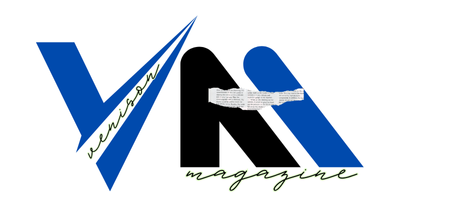Introduction to Kennedy Funding and the Lawsuit
Kennedy Funding, a prominent direct private lender, has found itself embroiled in a lawsuit that has captured the attention of both the financial sector and the general public. This case, centered around allegations of predatory lending practices and a lack of transparency, has raised significant concerns about ethical practices within the industry. The Kennedy Funding lawsuit not only highlights the potential pitfalls of private lending but also serves as a cautionary tale for consumers and investors alike. In this article, we will explore the details of the lawsuit, examine its implications for Kennedy Funding and the private lending industry, and discuss the importance of transparency and ethical practices in finance.
Allegations in the Kennedy Funding Lawsuit
The lawsuit against Kennedy Funding centers on several serious allegations that question the lender’s business practices. At the heart of the case are claims of predatory lending, where the lender purportedly took advantage of borrowers facing financial difficulties by offering loans with exorbitant interest rates and hidden fees. Additionally, the lawsuit accuses Kennedy Funding of lacking transparency, alleging that the terms and conditions of the loans were not clearly communicated to borrowers.
Predatory Lending Practices
Predatory lending refers to unethical practices where lenders impose unfair and deceptive loan terms on borrowers. The Kennedy Funding lawsuit alleges that the company exploited borrowers by charging excessive interest rates, leading to financial strain and increased debt for those who took out loans. Such practices can have devastating consequences for borrowers, leading to foreclosure and financial ruin.
Lack of Transparency
Transparency is a crucial element in lending, as borrowers need to understand the terms and conditions of their loans. The lawsuit claims that Kennedy Funding failed to provide clear and comprehensive information to borrowers, leading to misunderstandings and unexpected financial burdens. This lack of transparency undermines trust and raises questions about the lender’s commitment to ethical practices.
Legal Proceedings and Reactions
The Kennedy Funding lawsuit has prompted legal proceedings that aim to address the alleged misconduct. The case has drawn significant media coverage, with financial experts and consumer advocates weighing in on the potential impact of the allegations. The outcome of the lawsuit could set a precedent for how similar cases are handled in the future.
Impact on Kennedy Funding’s Reputation and the Industry
The allegations against Kennedy Funding have not only affected the company’s reputation but also raised broader concerns about the private lending industry as a whole. The potential consequences of the lawsuit extend beyond Kennedy Funding, influencing consumer perceptions and regulatory scrutiny.
Reputation and Trust
Kennedy Funding’s reputation has taken a hit due to the lawsuit, as consumers and investors question the company’s commitment to ethical lending practices. Trust is a crucial component in the financial sector, and allegations of misconduct can lead to a loss of credibility and customer loyalty.
Industry-Wide Implications
The lawsuit has prompted discussions about the need for increased regulation and oversight in the private lending industry. Policymakers and industry leaders are considering measures to ensure transparency and protect consumers from predatory lending practices. This case serves as a catalyst for change, highlighting the need for accountability and ethical conduct in finance.
Regulatory Scrutiny
Increased regulatory scrutiny is likely as a result of the Kennedy Funding lawsuit. Regulators may implement stricter guidelines and monitoring to prevent similar cases in the future. This shift could lead to a more transparent and consumer-friendly lending environment.
The Importance of Transparency in Lending
Transparency is a fundamental aspect of ethical lending practices. It ensures that borrowers fully understand the terms and conditions of their loans, enabling them to make informed financial decisions. The Kennedy Funding lawsuit underscores the significance of transparency in maintaining trust and integrity within the financial sector.
Educating Borrowers
Educating borrowers about their rights and responsibilities is essential in promoting transparency. Financial institutions should provide clear and accessible information about loan terms, fees, and repayment schedules. This empowers borrowers to make informed choices and reduces the risk of exploitation.
Building Trust
Transparency builds trust between lenders and borrowers, fostering positive relationships and long-term customer loyalty. When lenders prioritize transparency, they demonstrate a commitment to ethical practices and customer satisfaction.
Promoting Ethical Behavior
By prioritizing transparency, lenders can promote ethical behavior within the industry. Clear communication and open disclosure of loan terms help prevent misunderstandings and disputes, contributing to a fair and equitable lending environment.
Protecting Consumers and Investors from Predatory Lending
Consumers and investors can take proactive steps to protect themselves from predatory lending practices. Awareness and due diligence are key in identifying and avoiding unethical lenders. Here are some strategies to safeguard against predatory lending:
Research and Compare Lenders
Before committing to a loan, consumers should research and compare different lenders. This includes reviewing interest rates, fees, and customer reviews to identify reputable and trustworthy institutions.
Understand Loan Terms
Borrowers should carefully read and understand the terms and conditions of their loans. If any aspects are unclear, they should seek clarification from the lender or consult with a financial advisor.
Seek Legal Advice
In cases of suspected predatory lending, consumers should seek legal advice to explore their options for recourse. Legal professionals can provide guidance and support in addressing unethical practices.
Conclusion
The Kennedy Funding lawsuit serves as a wake-up call for the private lending industry, highlighting the need for transparency and ethical practices. It underscores the importance of protecting consumers and investors from predatory lending and calls for increased regulation and oversight. By prioritizing transparency, lenders can build trust and credibility, promoting a fair and equitable financial environment. The lessons learned from this case extend beyond the private lending sector, reminding us of the significance of ethical conduct and accountability in all areas of finance.
FAQs
- What are the main allegations in the Kennedy Funding lawsuit?
The lawsuit alleges predatory lending practices and a lack of transparency by Kennedy Funding, accusing the lender of imposing unfair loan terms and failing to clearly communicate them to borrowers.
- How can consumers protect themselves from predatory lending?
Consumers can protect themselves by researching and comparing lenders, understanding loan terms, and seeking legal advice if they suspect unethical practices.
- What impact could the Kennedy Funding lawsuit have on the private lending industry?
The lawsuit could lead to increased regulatory scrutiny and calls for transparency, prompting changes in industry practices to protect consumers.
- Why is transparency important in lending?
Transparency ensures borrowers understand loan terms, builds trust, and promotes ethical behavior, contributing to a fair and equitable lending environment.
- What lessons can be learned from the Kennedy Funding lawsuit?
The case highlights the need for ethical conduct, transparency, and accountability in finance, emphasizing the importance of protecting consumers from predatory practices.











